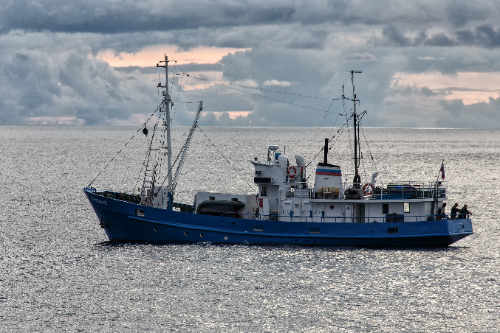The Centre was represented in the expeditions by V.V. Timofeeva, researcher from the Landscape Ecology and Forest Ecosystem Protection Laboratory of FRI KarRC RAS; G.V. Akhmetova and S.G. Novikov, researchers from the Forest Soil Science Laboratory of FRI KarRC RAS, as well as NWPI KarRC RAS employees R.E. Zdorovennov and V.N. Kovalenko.
The sites chosen for the study of recreational pressure in Vodlozersky Park were tourist stopovers on Rogunovo Island and Okhtoma facility, as well as areas around the illegal waste dump near the village of Kuganavolok. The dump has been closed and its subsequent remediation is planned.
On Kizhi Island and in the surrounding area the researchers visited several illegal waste dumps – near the villages of Yamka, Oyativshchina, Telyatnikovo, Sennaya Guba, on Mal’kovets Island.
The first stage was the selection of sampling plots for in-depth study of human impact on the ecosystems of the protected areas. Soil and water samples were taken for further analysis. Researchers will determine the sanitary-bacteriological and parasitological parameters of the sites, levels of heavy metal pollution, and other indices representing the recreational load. Also, the areas were surveyed at first approach to identify invasive plant species. Field surveys of the selected areas will be continued in July and August.
Karelia CBC Programme is financed by the European Union, Republic of Finland, and the Russian Federation.
News

June 14, 2019
At the beginning of June, reconnaissance expeditions to Vodlozersky National Park and Kizhi Island were implemented by a joint team of researchers from the Forest Research Institute and Northern Water Problems Institute of KarRC RAS and the University of Oulu within SUPER (Sustainability under pressure) project of the Karelia CBC Programe.
See also:

June 26, 2025
Ice-related phenomena on rivers emptying into the White Sea now last three weeks less than 60 years before
Ice on northern rivers now forms later while ice-off occurs earlier. Karelian scientists confirmed this having analyzed 64 years of marine and meteorological data from the estuaries of rivers draining into the White Sea along its western coast. Climate change has bit three weeks off the ice-covered period on these rivers. The reductions have been the most significant in the last 30 years, aligning with global warming trends in Arctic water bodies.
Ice on northern rivers now forms later while ice-off occurs earlier. Karelian scientists confirmed this having analyzed 64 years of marine and meteorological data from the estuaries of rivers draining into the White Sea along its western coast. Climate change has bit three weeks off the ice-covered period on these rivers. The reductions have been the most significant in the last 30 years, aligning with global warming trends in Arctic water bodies.

June 23, 2025
Citizen science and web technologies help researchers study insects of Karelia
More than 30 insect species not encountered in Karelia previously have been revealed by entomologists from KarRC RAS during their expeditions and using data communicated by active participants of the iNaturalist portal – an open platform for collecting biodiversity data.
More than 30 insect species not encountered in Karelia previously have been revealed by entomologists from KarRC RAS during their expeditions and using data communicated by active participants of the iNaturalist portal – an open platform for collecting biodiversity data.

June 20, 2025
Application process for 2025/2026 Doctoral Studies started at KarRC RAS
On June 20, Karelian Research Centre RAS began accepting papers from applicants for its Doctoral Courses. This year, university graduates can choose from ten academic specialties in the STEM, natural sciences, humanities, and social sciences.
On June 20, Karelian Research Centre RAS began accepting papers from applicants for its Doctoral Courses. This year, university graduates can choose from ten academic specialties in the STEM, natural sciences, humanities, and social sciences.

June 17, 2025
An important phase of the KarRC RAS Director General election procedure completed
The Electoral Commission has summarized the results of the voting for the election of the Director General of KarRC RAS. The turnout exceeded 80% of the Center's employees. The majority of votes, 391, were cast for Alexander Kryshen, Director of the Forest Research Institute. Acting Director General Olga Bakhmet was supported by 252 voters, and Deputy Director General Yuri Zaika received 17 votes. The Electoral Commission documented these results in its report, which will be submitted to the HR Policy Department of the Federal Ministry of Science and Higher Education. The candidacies will now undergo the procedure of approval by federal agencies, after which the employment contract will be signed with the winner of the competition.
The Electoral Commission has summarized the results of the voting for the election of the Director General of KarRC RAS. The turnout exceeded 80% of the Center's employees. The majority of votes, 391, were cast for Alexander Kryshen, Director of the Forest Research Institute. Acting Director General Olga Bakhmet was supported by 252 voters, and Deputy Director General Yuri Zaika received 17 votes. The Electoral Commission documented these results in its report, which will be submitted to the HR Policy Department of the Federal Ministry of Science and Higher Education. The candidacies will now undergo the procedure of approval by federal agencies, after which the employment contract will be signed with the winner of the competition.

June 11, 2025
Posseidon research vessel is back from this season’s first integrated expedition
Employees of the Northern Water Problems Institute KarRC RAS completed an expedition around Lake Onego on board the Posseidon research vessel. The expedition covered 19 sites in bays, Central Onego, and Kizhi Skerries region. Scientists have sampled water for chemical and biological analyses.
Employees of the Northern Water Problems Institute KarRC RAS completed an expedition around Lake Onego on board the Posseidon research vessel. The expedition covered 19 sites in bays, Central Onego, and Kizhi Skerries region. Scientists have sampled water for chemical and biological analyses.







